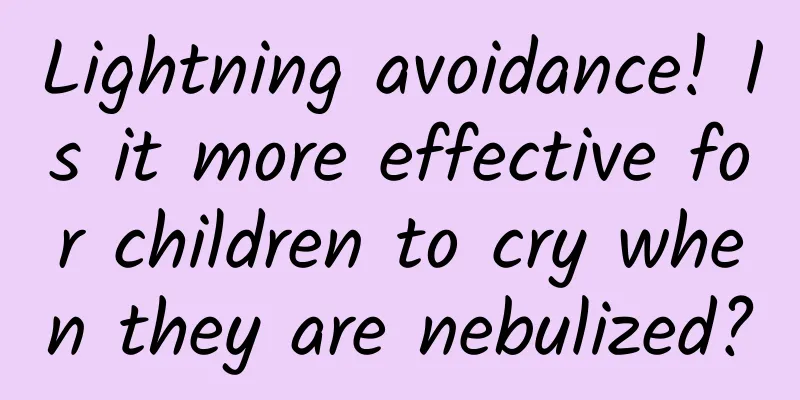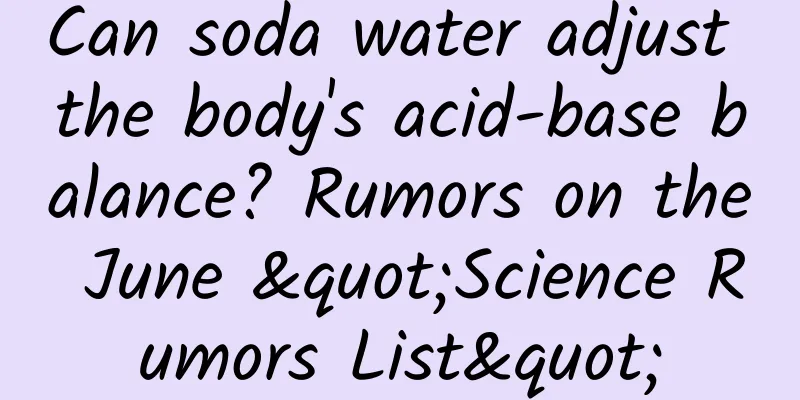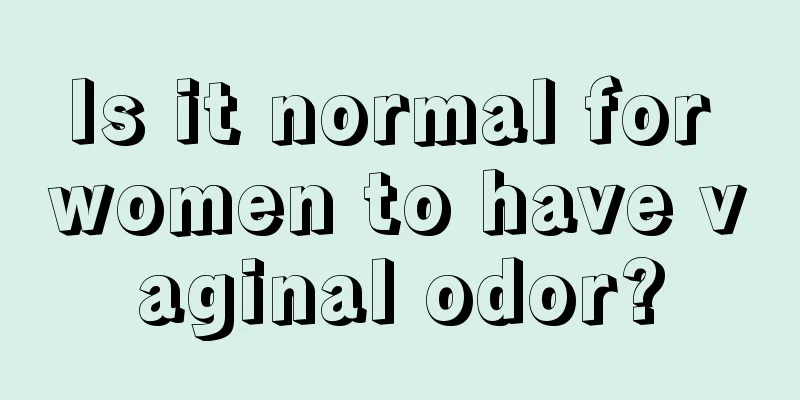Lightning avoidance! Is it more effective for children to cry when they are nebulized?

|
Nebulization refers to the process of turning liquid medicine into aerosol and inhaling it through the airway to achieve a therapeutic effect. Currently, the most commonly used one is an air compression nebulizer, which uses compressed air to form a high-speed airflow through a relatively small pipe opening. The negative pressure generated will drive the liquid medicine and spray it into mist-like particles, which are relatively easy to be inhaled into the mucous membranes of the airway, including the throat, trachea, bronchi, alveoli, etc., and are usually widely used in respiratory diseases. She was crying while having the nebulizer sprayed, but her glottis was closed and the nebulizer medicine could not enter the airway at all, let alone the trachea and bronchi. When crying, the breathing pattern will change significantly, mainly manifested as rapid and shallow breathing, and most of the nebulized medicine will be deposited in the throat, rather than the deep and slow breathing required for nebulization treatment. This breathing pattern is not conducive to the mist particles to penetrate into the small bronchi of the lungs, thereby reducing the treatment effect. Moreover, when crying, a large amount of tears and nasal secretions may increase, and tears and snot will form a barrier to prevent the mist particles from entering the respiratory tract through the nasal cavity or mouth. In addition, the swallowing action when crying may also cause some mist particles to be accidentally swallowed into the digestive tract instead of directly acting on the respiratory tract. So, there is one effective method that parents think is effective. Doesn't crying cause more air to be sucked into the stomach? What should I pay attention to after atomization? Forgot to dry your mouth and nose and rinse your mouth after atomization. Many nebulized drugs contain hormones, so the small matter of "wiping the mouth and nose dry" should never be ignored. Parents of young children, in particular, should not "get it over with" after the nebulization is completed, but should use a wrung-out wet towel to dry the child's face and mouth and nose after each nebulization inhalation. "Because the skin on the face of young children is thin and rich in blood vessels, residual liquid medicine can be absorbed and may be absorbed by the skin, forming white spots. In addition, after the nebulization of hormone drugs is finished, remember to rinse your child's mouth (babies drink saliva). This action is to reduce the residual irritation of the nebulized drug to the oral cavity and reduce the place where the drug should not go. If the drug acts on the throat, please note that you should not drink water 15 minutes after the nebulization is completed, otherwise it will affect the effect of the drug, such as interferon. In addition, for young babies, try not to eat half an hour before nebulization inhalation to avoid aerosol irritation of the airway during nebulization inhalation and cause vomiting. |
>>: National Disability Prevention Day poster
Recommend
What should I check when I am 3 and a half months pregnant?
With the increasing rate of newborn defects today...
Does ovulation occur alternately between the left and right ovaries?
The uterus and ovaries are very important for fem...
What is the situation of the golden retriever vomiting and diarrhea? What medicine should I give the golden retriever?
Golden Retrievers are named for their golden hair...
What medicine is good for vaginal itching?
Now is the season of spring returning to the eart...
Why do women have menstruation?
Normally, women will have menstruation between th...
Is it possible not to do Down syndrome screening?
Is it necessary to do Down syndrome screening? Pr...
What is the reason for the lower body to feel hot?
The hotness of the lower body may be caused by in...
I just got pregnant and my underwear is wet due to excessive vaginal discharge
The fusion of male sperm and egg cell will become...
Respiratory diseases are coming in groups! Please remember the tips to avoid pitfalls when taking medicines
Autumn and winter are the peak seasons for respir...
How to recover after caesarean section
Many women will find that their bodies have compl...
What are the symptoms of pelvic prolapse
Some girls will experience pelvic prolapse after ...
What is needed to make egg tart liquid? How long does it take to bake egg tarts?
There are two types of egg tarts: Cantonese egg t...
What causes stomach pain in pregnant women?
During pregnancy, pregnant mothers should be caut...
How to help expel the gestational sac
Many times, due to the lack of long-term contrace...
![[Medical Q&A] Emergency must-read! If a family member suddenly suffers a stroke, do you know these precautions?](/upload/images/67f0f0ad39ccc.webp)








